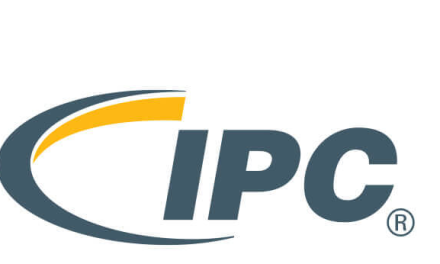Four Key Failures Driving Today’s Skills Gap
By Carlos Plaza, Senior Director of Education at IPC
The upheaval of recent years reminds us that change is inevitable. Growth, on the other hand, is merely possible. Across the globe, growth in the electronics manufacturing sector is constrained by workforce shortages and a persistent skills gap. Demand for manufacturing output continues to rise just as access to qualified workers diminishes. Baby Boomers are aging out of the workforce, the expectations of workers are evolving, and there is a prevalent mismatch between the skills employees require and the skills available workers possess. This dogged state of affairs limits the industry’s growth and leads to increased production costs in an already thin-margin sector.

The growing number of retirements may be difficult to address, but we can bridge the mismatch between the skills of the current workforce and the needs of the electronics manufacturing industry. To tackle this challenge, we need to understand our industry’s shortcomings in four key areas of workforce development: talent pipeline, onboarding, career pathways, and upskilling.
Talent Pipeline
A school-to-workforce pipeline is a coordinated system designed to prepare students for a seamless transition from educational institutions to the labor market. This pipeline involves collaboration between schools, vocational programs, higher education institutions, and employers to ensure that students acquire the necessary skills, knowledge, and experiences to meet the demands of the industry. The electronics manufacturing industry lacks the kind of school-to-workforce pipeline that provides fields such as machining and automotive repair with a ready pool of qualified workers. As a result, there are fewer individuals with the necessary skills to fill available positions.
Onboarding
The lack of a talent pipeline often leads to weak onboarding programs, which worsen the skills gap. Without education pipeline partners, employers end up having to teach foundational knowledge and skills even though few manufacturing companies count education among their core competencies. The result is often an onboarding process that either takes too long for workers to become proficient or fails to provide new employees with the required skills. This, in turn, sets off a compounding spiral of decreasing productivity, quality, customer satisfaction, and revenue.
Career Pathways
Career pathways are structured routes that outline the progression and development opportunities available to employees within an organization or industry. They provide a clear roadmap for individuals to follow, detailing the skills, competencies, and experiences needed at each stage of their career. The electronics manufacturing industry does not have a standardized career pathway framework that current and potential employees can use to identify the training and certification programs required to progress from one job role to another. This is a critical issue because employees who cannot see a clear path for career advancement are much more likely to seek other opportunities, resulting in a continuous and costly loss of institutional knowledge and skills.
Upskilling
As we noted with onboarding, most manufacturers are not well equipped to design, implement, or evaluate educational solutions. The absence of a specialized and standardized training system makes it challenging for them to enhance the skills of their current workforce quickly and efficiently. If employees do not have access to effective upskilling opportunities, their skills will remain stagnant while industry requirements and technologies continue to advance. Companies that fail to enhance the skills of their workforce will find it difficult to innovate and compete effectively in the market. As other companies forge ahead with a more skilled workforce, those lacking in upskilling efforts will lose their competitive advantage.
The lack of an industry-driven pipeline, effective and efficient onboarding programs, a career pathways system, and a rapid upskilling infrastructure all contribute to the skills gap limiting growth in the electronics manufacturing industry. Fortunately, IPC has plans to address the industry’s workforce challenges and bridge the growing skills gap to ensure long-term sustainability and growth. Stay tuned here for future posts on the topic, and download our white paper, Building Electronics Better: A Plan to Address the Workforce Challenges Facing the Electronics Manufacturing Industry, here to learn more.












